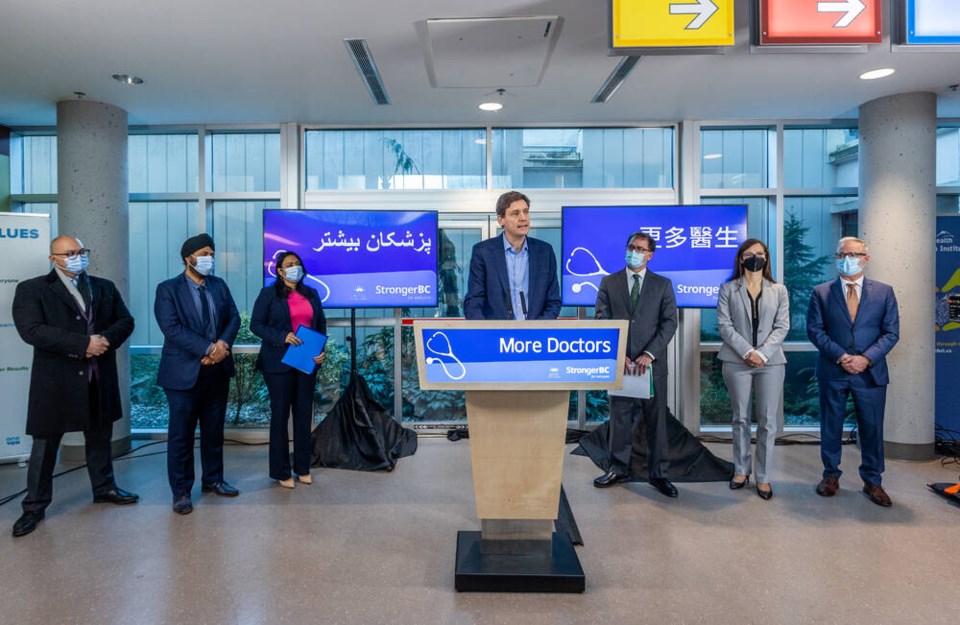New initiatives were announced Sunday to make it easier for internationally trained doctors to practise in B.C. to help address the health-worker shortage.
Premier David Eby launched the multi-pronged program with a defence of Canada’s universal health care system, dismissing any idea of a pay-as-you-go approach. “We can’t privatize our way to a better health care system.”
Doctors trained elsewhere are living in B.C. but unable to practise family medicine because they lack a pathway to be licensed here, he said.
B.C. is tripling the number of seats filled annually to 96 from 32 by March 2024 for its practice-ready assessment program for doctors from outside the province.
After an applicant successfully completes an assessment, that physician receives a provincial licence and is able to practise for three years in communities where a need has been identified, typically rural and remote communities in the province. Some are already practising on 91įŁ┤┤ Island.
Under the expanded program, physicians will be able to work in more urban settings to help fill gaps in service.
Physician Dr. Ehab Fadhel completed his assessment program this year, saying it prepared him to serve as a family doctor at the Arbutus Family Medicine clinic in Victoria. He trained in Qatar and in the U.S. before coming to B.C.
Health Minister Adrian Dix said there are 4,451 international medical graduates practising in B.C. Of those, 2,570 of them are family doctors.
Also coming is an initiative which will allow internationally trained medical school graduates who are not eligible for a full or provisional licence in B.C. to be part of a new associate physician category, registered with the College of Physicians and Surgeons.
Associate physicians with specialty training will be allowed to care for patients under the supervision of an attending physician at a health authority acute care facility until they can become licensed, Dix said. “This will help us increase capacity in high-need areas such as acute care.”
It is believed that there are 300 people in B.C. already able to qualify as associate physicians.
The Ministry of Health is further aiming to expand the associate physician program to see them working in community-based primary care settings.
And with the goal of giving prospective international medical graduates more certainty that they will be allowed to practise in B.C., the province announced a plan to allow them to complete their accreditation process in their home countries before moving here.
The province is working the College of Family Physicians of Canada and the Royal College of Physicians and Surgeons in Canada on that initiative.
In a move to attract U.S. physicians with at least three years of training, the College of Physicians and Surgeons of B.C. is drawing up new bylaws in coming weeks to allow them to practise medicine in urgent and primary care centres, community clinics, and family practices.
These physicians will be able to care for adults and pediatric patients, and provide emergency and urgent care.
The goal is for these U.S.-trained physicians to be practising in B.C. by January.
Dr. Ramneek Dosanjh, president of Doctors of B.C., praised the province’s moves to support and attract internationally trained family doctors. “This is something that Doctors of B.C. has long advocated for. We are all well aware of the very real challenges in primary care that have been with us for far too long.
“Any effort to address these problems is welcome. Patients and doctors need all the help they can get.”
Dosanjh, who is a U.S.-trained physician, said many of her colleagues are looking to move to B.C. to practise.





